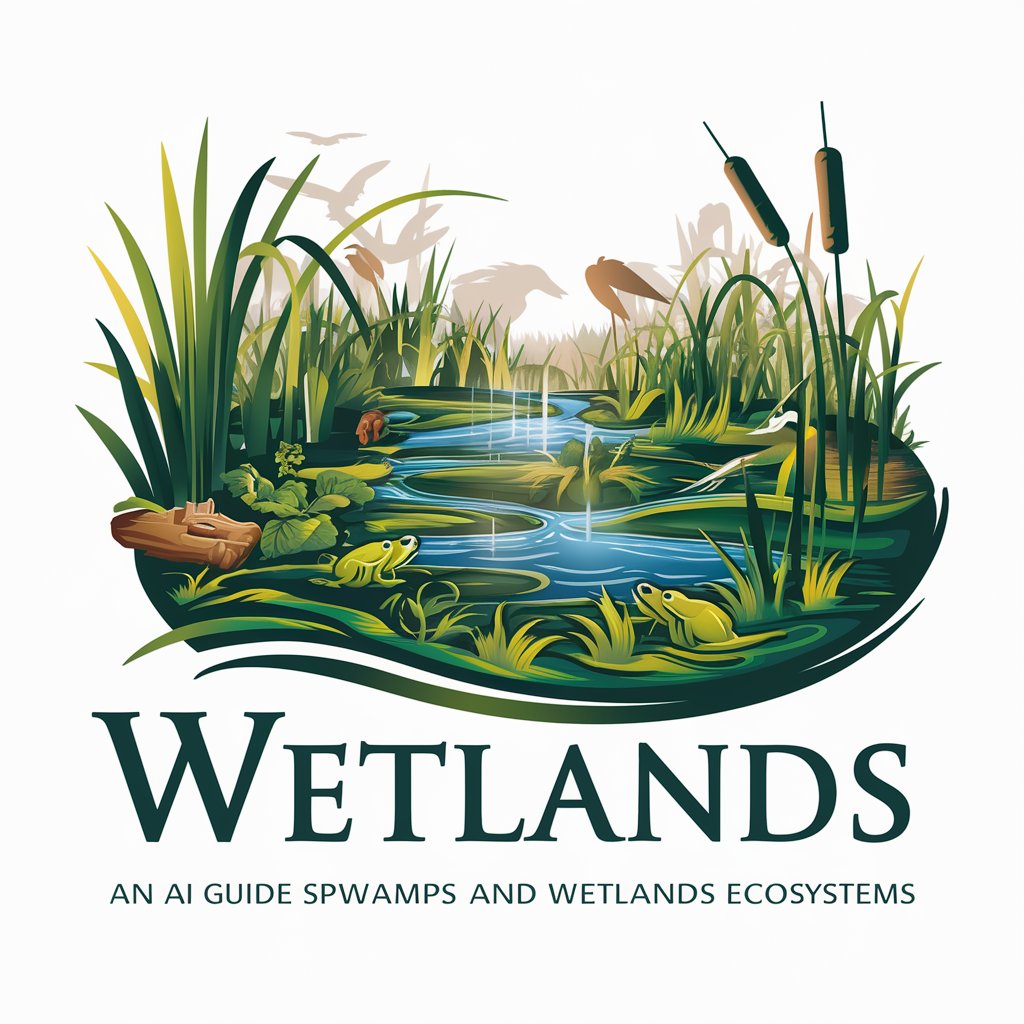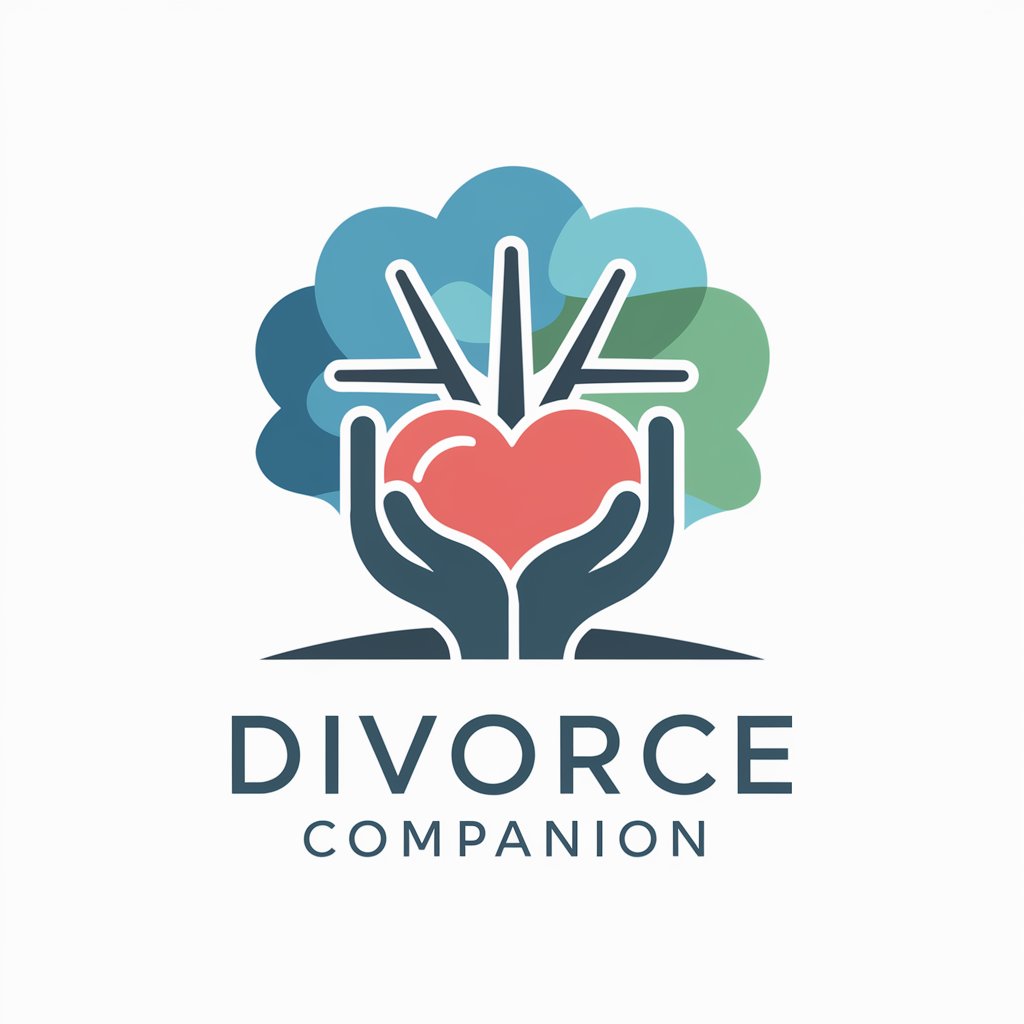Wetlands - Wetlands Exploration Tool

Welcome! Let's explore the fascinating world of wetlands together.
Uncover the secrets of wetlands with AI
Explain the role of wetlands in flood control and water purification.
Describe the biodiversity found in a typical swamp ecosystem.
Discuss the main threats to wetlands and their conservation efforts.
How do wetlands contribute to climate change mitigation?
Get Embed Code
Introduction to Wetlands
Wetlands are diverse ecosystems characterized by the presence of water, either permanently or seasonally, where oxygen-free processes prevail. These ecosystems include marshes, swamps, bogs, and fens, and are among the most productive natural environments in the world, supporting a vast array of plant and animal life. Wetlands play crucial roles in the environment, such as water purification, flood protection, carbon storage, and providing habitat for wildlife. They act as natural sponges, absorbing rainfall and reducing flooding, and filter pollutants, improving water quality. Examples of wetlands include the Florida Everglades, known for its large mangrove forests and diverse wildlife, and the Sundarbans in Bangladesh and India, home to the Bengal tiger. Powered by ChatGPT-4o。

Main Functions of Wetlands
Water purification
Example
Removing pollutants from water
Scenario
Wetlands act as natural filters, removing pollutants such as nitrogen and phosphorus from water through the action of plants and microorganisms. This function is crucial for maintaining clean water supplies for humans and aquatic ecosystems.
Flood control
Example
Absorbing excess rainfall
Scenario
During heavy rains, wetlands absorb and store excess water, reducing flood risks in nearby communities. This was evident in the role of wetland areas along the Mississippi River, which can store excess floodwater, thereby mitigating potential flood damage to properties and ecosystems downstream.
Carbon sequestration
Example
Storing carbon to combat climate change
Scenario
Wetlands store carbon in their plant matter and soil instead of releasing it to the atmosphere as carbon dioxide. Peatlands, a type of wetland, are particularly effective at storing carbon over millennia, playing a significant role in mitigating climate change.
Biodiversity support
Example
Providing habitat for diverse species
Scenario
Wetlands offer a habitat for a wide range of species, from migratory birds to fish and mammals. The Ramsar Convention on Wetlands of International Importance especially notes the importance of wetlands as habitats for waterfowl, demonstrating their critical role in supporting global biodiversity.
Ideal Users of Wetlands Services
Environmental researchers
Scientists and researchers focusing on ecology, hydrology, and environmental science benefit from studying wetlands to understand their functions, biodiversity, and the effects of climate change. Wetlands provide natural laboratories for studying ecosystem processes and species interactions.
Conservationists and environmental NGOs
Organizations focused on environmental conservation utilize wetlands for restoration projects and to advocate for their protection. They engage in activities such as habitat restoration, policy advocacy, and community education to preserve wetland areas.
Policy makers and urban planners
Individuals involved in developing policies and planning urban development can use wetlands as natural solutions for water management, flood mitigation, and enhancing urban biodiversity. Integrating wetlands into urban planning helps create sustainable cities that are resilient to climate change.
Educators and students
Teachers and students across various levels of education use wetlands for experiential learning about ecosystems, biodiversity, and the importance of environmental conservation. Wetlands serve as outdoor classrooms for practical lessons in science and ecology.

Guidelines for Using Wetlands
1
Initiate your exploration of wetlands by heading to yeschat.ai, where you can embark on your journey without the need for signing in or subscribing to ChatGPT Plus.
2
Select the 'Wetlands' option from the available tools menu to dive into the ecosystem's intricacies, biodiversity, and conservation efforts.
3
Prepare your questions or topics of interest related to wetlands, such as ecosystem functions, species diversity, or conservation strategies, to ensure a focused and enriching experience.
4
Utilize the provided information and resources to deepen your understanding, and don't hesitate to ask follow-up questions for more in-depth exploration.
5
Take advantage of the tool's capabilities by applying the insights gained to academic research, environmental policy development, or personal knowledge enrichment.
Try other advanced and practical GPTs
Lymphoma
Empowering Lymphoma Understanding with AI

Sutta Seeker
Discover Buddha's Teachings through AI

19
Unlocking the Mysteries of 19 with AI

Fired
Empowering Termination Solutions with AI

ZenPal: Your Daily Mindful Mate
Empowering mindfulness with AI

Divorce Companion
Empowering Emotional Resilience with AI

Canadian Property Expert
Empowering Real Estate Decisions with AI

Elite Athlete
AI-Powered Personalized Nutrition

JobGenie
Empowering your job search with AI

Häuser schätzen lassen
AI-powered real estate valuation at your fingertips.

Meme Magic Wizard
Craft Memes with AI Magic

Game creator
Unleash creativity in game design with AI

Frequently Asked Questions about Wetlands
What are the primary functions of wetlands in the ecosystem?
Wetlands play crucial roles in the environment, including water purification, flood protection, carbon storage, and providing habitat for a diverse range of flora and fauna.
How do wetlands contribute to biodiversity?
Wetlands serve as vital breeding grounds and habitats for numerous species, supporting an array of birds, fish, amphibians, and plant life, thus significantly contributing to global biodiversity.
What are the main threats to wetland ecosystems?
The major threats include pollution, climate change, invasive species, and land development, which can lead to habitat loss, degradation, and reduced ecosystem services.
How can individuals participate in wetland conservation?
Individuals can contribute by supporting wetland conservation organizations, participating in local restoration projects, reducing pollution through sustainable practices, and spreading awareness about the importance of wetlands.
What are some key indicators of a healthy wetland ecosystem?
Indicators include a diversity of plant and animal species, clear water quality, active natural processes like water filtration and sediment trapping, and the presence of native vegetation.
